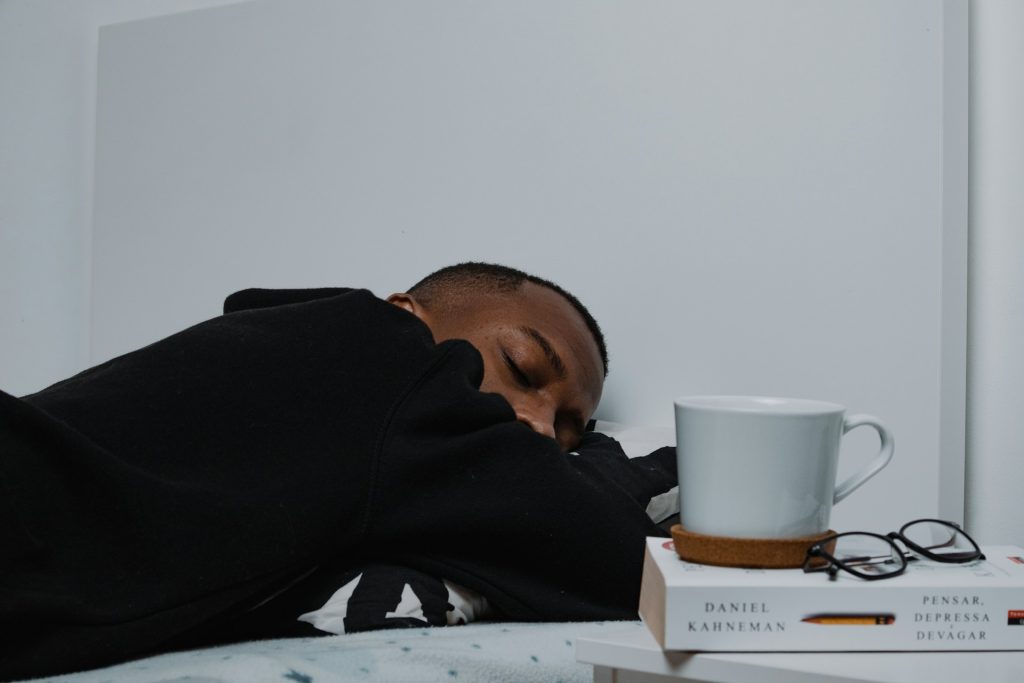
Dragging yourself through another workday with sand-paper eyes and zero patience? You’re not alone. Many employees who feel stuck or irritable on the job chalk it up to a toxic boss or dull tasks, yet the deeper issue might be chronic sleep deprivation.
Scientific studies show that even moderate sleep loss lowers motivation, dims creativity, and amps up negative emotions—perfect fuel for hating your nine-to-five. When you’re also juggling parenting or household duties, those midnight wake-ups add another layer of exhaustion. Before rewriting your résumé, it’s worth exploring whether better rest could revive both your energy and your outlook. Here are a few factors to consider:
Why Your Pillow Problems Are Poisoning Job Satisfaction
Lack of quality sleep doesn’t just make you groggy; it rewires how your brain interprets workplace experiences. Researchers have linked insufficient sleep to higher emotional reactivity, meaning small annoyances—like a curt email—feel far worse after a short night.
Over time, that hypersensitivity breeds cynicism toward coworkers and disengagement from tasks you once enjoyed. Sleep debt also impairs the prefrontal cortex, the region responsible for decision-making and focus, leaving you prone to mistakes and self-criticism. Add in “revenge bedtime procrastination,” where you stay up late doom-scrolling to reclaim me-time, and the exhaustion cycle deepens.
Sleep Deprivation Fuels Burnout
Employees sleeping fewer than six hours a night face double the burnout risk of well-rested peers. Chronic fatigue blunts your ability to recover from daily stress. Challenges pile up faster than you can process them. Eventually, you may feel emotionally numb. This is classic burnout territory that leaves you blaming the job rather than the underlying exhaustion.
Stress Keeps You Awake—Then Hits Harder Tomorrow
Job stress and poor sleep form a vicious loop: tight deadlines or conflict keep your brain wired at bedtime, and fragmented sleep makes the next day’s stress feel unbearable. One study found that employees with high levels of workplace stress were more likely to suffer insomnia symptoms. This can result in lower performance reviews and potentially termination. It’s crucial for employers to gauge the stress levels of their team to facilitate a positive work environment for everyone.
Parents and Revenge Bedtime Procrastination
For caregivers, the only quiet hours may arrive after the kids go down. This can tempt you to scroll social media or binge shows late into the night. Experts call this “revenge bedtime procrastination,” and while it feels like self-care, it steals the restorative REM cycles that buffer stress hormones. The result? You awaken groggy, short-tempered, and convinced the job—not the night-owl habit—is at fault.

Small Shifts, Big Payoffs
Ready to make lifestyle changes to improve your sleep quality? Here are a few tips:
- Set a firm shutdown ritual. Establish a digital curfew one hour before bed; dim lights, stretch, or read on paper to cue relaxation.
- Anchor a consistent wake-up time. Even on weekends, rising within the same 30-minute window trains your circadian rhythm.
- Create a worry journal. Jot tomorrow’s tasks and concerns before bed to keep rumination from hijacking sleep.
- Guard the bedroom. Reserve it for sleep and intimacy—banish laptops and children’s toys so your brain links the space with rest.
- Seek professional help early. If insomnia or sleep apnea symptoms persist, consult a sleep specialist; untreated disorders undermine every productivity hack.
Excited to Swap Exhaustion for Engagement?
Sleep struggles can morph a decent job into daily drudgery, but reclaiming quality rest often revives focus, patience, and satisfaction faster than a career change.
Could an extra hour of consistent, high-quality sleep be the missing ingredient in your work-life recipe? Share your own sleep challenges or success stories below—your insight might help another tired reader reboot their career outlook.
Read More
- Building Trust: The Key to Helping Children Open Up About Feelings
- Ditch the Guilt: A Realistic Approach to Parenting

Samantha Warren is a holistic marketing strategist with 8+ years of experience partnering with startups, Fortune 500 companies, and everything in between. With an entrepreneurial mindset, she excels at shaping brand narratives through data-driven, creative content. When she’s not working, Samantha loves to travel and draws inspiration from her trips to Thailand, Spain, Costa Rica, and beyond.